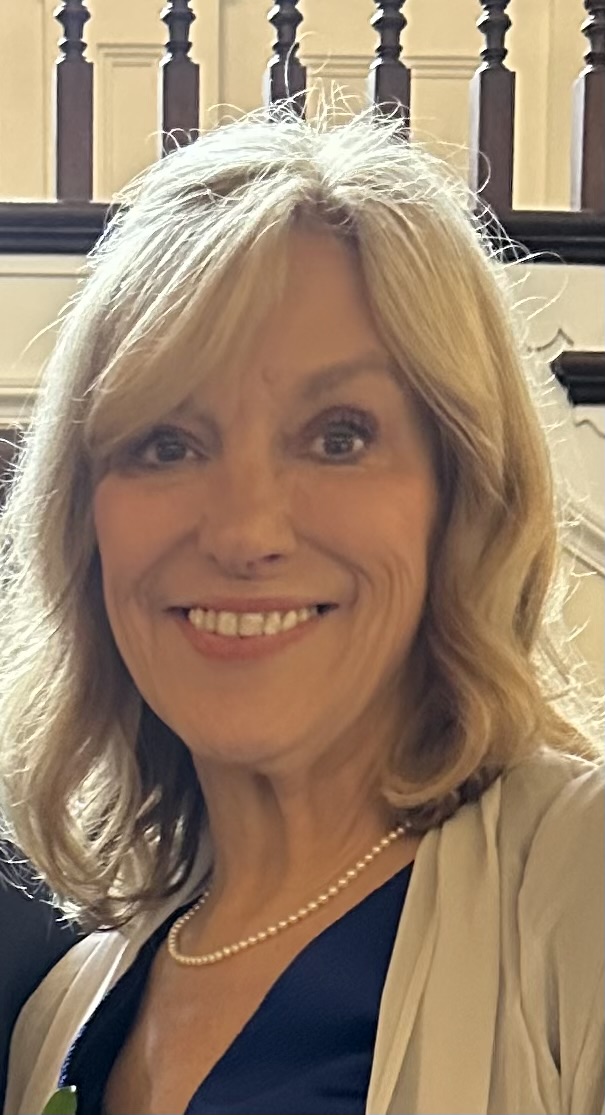Over four decades ago, Christine “Chris” King, B.S. ‘81, M.S. ‘82, began her career in satellite communications, network planning, and program management at COMSAT Laboratories, a research arm of the global satellite communications company established by the U.S. Congress in 1962. Having freshly completed her B.S. in Applied Mathematics at GW, she entered with a strong foundation that enabled her to perform software modeling for frequency planning and time division multiple access (TDMA).
However, King felt limited by her lack of knowledge of communications engineering, which links these software applications to the satellites’ hardware components. “I was frustrated because I didn’t see the big picture as much in communications,” she said.
This led King to pursue a master’s in electrical engineering at GW’s School of Engineering & Applied Science (GW Engineering), where she focused on communications and networks to expand her technical skills in areas from information theory to stochastic processes.
“I had a software background from my undergraduate studies, which is what COMSAT originally hired me for, and then I morphed that to ensure I had the communications background, too. It was synergistic,” said King.
A Synergistic Career in Satellite Communications
When King began working in satellite communications, she entered a rapidly evolving field as the U.S. worked to continue building on the progress made in the 1960s and 70s. She notes that a distinguishing factor of GW Engineering’s master's program was how the curriculum took these changes into account in real time.
“The curriculum was really tailored for the time, as a lot was happening in communications and satellites. It was a good time to be in school,” King stated.
Another standout feature was the preparation for comprehensives, where King had to combine all the skills she’d been learning to solve real-world problems, like satellite link budgets or creating network designs. “This was really helpful in showing you how all pieces of the curriculum fit together,” she said.
One of her proudest accomplishments at COMSAT was managing the development of software for Intelsat’s TDMA system, a pioneering technique for the time, where multiple nodes can share the same communication channel by dividing signals into time slots. This groundbreaking project involved creating software integral to deploying signals from ground stations to the satellite and back. The moment it went live and successfully connected calls across the ocean was thrilling and marked a significant milestone in King’s career.
Some of the software models King helped create are still in use by Intelsat today, although they’ve been upgraded to keep pace with the advancements in modern technology and other innovations. Her on-the-job training and education at GW enabled King to effectively navigate the technological innovations she encountered in her early career and advance into increasingly responsible roles.
King held managerial positions at both COMSAT and Lockheed Martin, which acquired the global telecommunications firm in 2000. She spent the next 13 years in executive leadership at Lockheed Martin, where she continued her work directing efforts with U.S. Government and international satellite companies. By the time she retired in 2014, King had spent decades in the industry, moving from technical mastery to strategic oversight of complex international satellite programs.
"Act Two": New Neighbor Interfaith Alliance
While she always had an aptitude for math and science, King started as a sociology major at GW before switching to applied mathematics. The same drive to give back and passion for social justice that initially drove her to sociology led her to co-found the New Neighbor Interfaith Alliance (NNIA) in 2019. NNIA is a non-profit that provides both emergency and long-term support to immigrants and their families in Montgomery County, Maryland.
“I felt so very fortunate for my career and its rewards. The ability to stop work while I was still young enough to have an act two made me know I wanted to keep going,” said King.
King’s mother was a Polish immigrant, so growing up in a predominantly immigrant community familiarized her with their unique struggles. She began supporting another refugee support organization in 2016 during the Syrian refugee crisis, where she noticed the logistics of the operation needed to considerably improve, saying, “The seasoned manager in me went crazy inside. I knew that if we were better structured, then we could help more.” This led to the founding of NNIA three years later.
NNIA joins the efforts and resources of Montgomery County faith communities of all denominations, civic groups, and individual volunteers to help immigrants live healthy, productive, and independent lives. King’s professional and academic networks have also rallied around the cause; notably, former COMSAT colleagues and Professor Emerita Shelley Heller of GW Engineering are among the dedicated volunteers.
Since 2019, NNIA has grown from 14 families to supporting over 100 families through their journey to independence. Their goal is to accelerate this process, achieving successes like an Afghan refugee family they’ve worked with since 2021, who recently bought their first home.
Covering everything from education, employment, housing, food, transportation, healthcare, and more, NNIA’s approximately 130 volunteers provide immigrants with life-giving support. Each volunteer focuses on a specific area based on their professional background to address existing gaps. For instance, King utilizes the leadership and organizational skills she developed during her successful telecommunications career in her work directing the NNIA.
“I feel strongly that we’re all called to give back, so when you can, you should in whatever way that is,” King said. “It’s amazing how much of what I learned from my work and my background can help others, too.”


